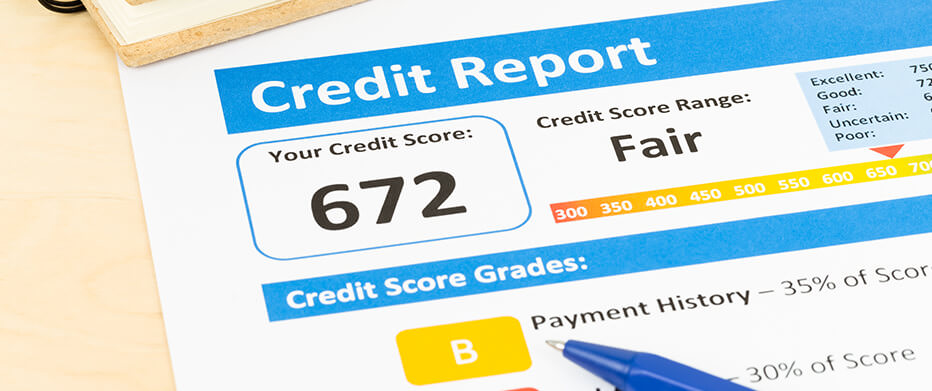The Key Factors Impacting Your Credit Score


Key Takeaways
- Your credit score measures how well you manage debt.
- Payment history and credit utilization are the two most significant factors impacting your credit score.
- To maintain a high credit score, you must keep revolving balances below 30% of their credit limits and pay bills on time.
Credit scoring companies gather information from creditors and create a proprietary credit score evaluating each consumer’s ability to repay debt. The FICO scoring system is the most widely used credit scoring company used by 90% of lenders.
While each company has a proprietary formula used to calculate consumer credit scores, the companies provide the basic factors used in determining your credit score. FICO uses a scale from 300 to 850 to measure a consumer’s credit rating. A higher credit score means you are a lower risk to a lender who may wish to extend credit to you.
Scoring models are designed to evaluate the credit risk of a borrower to repay a debt in the future. However, many companies, including utilities, service providers, corporations, rental companies, and insurance providers, use credit scores to approve or decline applicants.
The FICO Scoring Model
FICO uses five primary factors to calculate your credit score. These include:
Payment history comprises 35% of the overall score and holds the most weight of any factor. Creditors report monthly payments to the credit bureau on all your outstanding debts. The payment history does not typically include payments for rent, utilities, cell phones, and other services unless the account becomes delinquent because they are not considered debt.
Any late payments remain on your credit file for seven years. A bankruptcy can stay on the report for up to 10 years.
Credit Use or Utilization accounts for 30% of the credit score and is the second most important factor in your credit score. Utilization measures how well you manage revolving accounts such as credit cards and other lines of credit.
The score considers your outstanding account balance in relation to the credit limit. For instance, if you have a $5,000 line of credit and maintain a revolving balance of $2,500, you have a 50% credit utilization. The higher the percentage, the lower your credit score. One of the fastest ways to improve your credit is to pay down revolving debt because you lower the utilization ratio. It is a good rule of thumb to keep your credit utilization at 33% or less. Higher than 33% and you will begin to see your credit score begin to drop.
Credit History measures how long you have had credit as well as recently opened accounts. It weighs in at 15% of the overall credit score. Opening several new accounts in a short time can lower your score. Since your credit history is comprised of an average, closing accounts can also impact your credit history, especially if you close a credit card you have had in place for many years. Younger borrowers also see the impact of credit history because their credit may not extend for many years.
New Credit comprises 10% of the overall score and evaluates both newly opened accounts and applications submitted. To allow consumers to shop rates without impacting your score, newer credit scoring models grant allows you to apply for new credit from 14 to 45 days and consider it as a single event. The time period granted depends on the type of credit you are applying for and which scoring model the lender uses.
Type of Credit Used. FICO places a 10% weight on the types of credit you maintain, which includes both loans and lines of credit.
Final Thoughts
There is a lot of emphasis on credit scores because a low score can impact your ability to obtain new credit as well as impacting deposit requirements and application approvals. However, because credit utilization plays a major role in your overall credit score, carrying high debt levels can stymie your ability to get new credit, even without late payments. If you have high debt and are not paying off unsecured debt successfully every month, your credit score may already be negatively impacted. If this is the case, your credit score may not be as important as tackling the goal at hand and getting rid of debt altogether. Your primary concern should be reducing or eliminating your debt balances and not focusing on your credit score, which can lead to more open lines of credit and ultimately higher debt loads.
FAQ

REPRESENTATIVE EXAMPLE OF APR
If you borrow $30,000 over a term of 5 years (60 months) with an APR of 4.99% you will pay $566.00 each month. The total amount payable will be $33,959.97, with total interest of $3,959.97.
ANNUAL PERCENTAGE RATE (APR)
Annual Percentage Rate (APR) represents the annualized interest rate you are charged for borrowing. It is the combination of the nominal interest rate and some additional costs such as fees involved when incurring debt. Our lender offers APRs for personal loans, cash advance loans, installment loans and debt consolidation loans from 4.99% to 35.99%. Since New Start Capital does not directly issue loans, we cannot deliver any specifics or guarantee the APR you will be offered. The APR depends solely on your lender’s decision, based on various factors including your credit score, credit history, income, and some other information you supply in your request. For more information regarding the APR contact your lender.